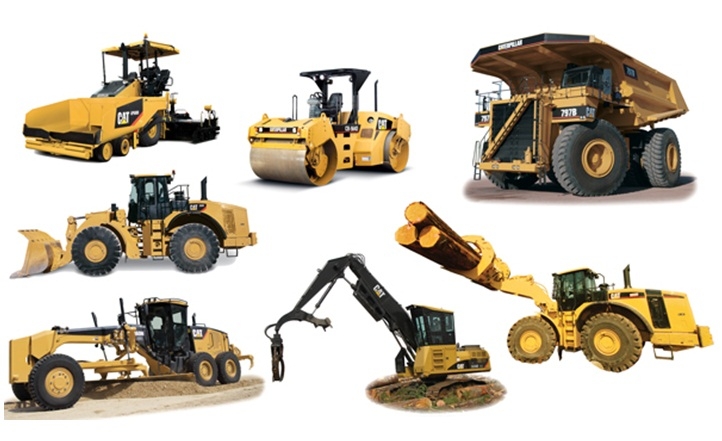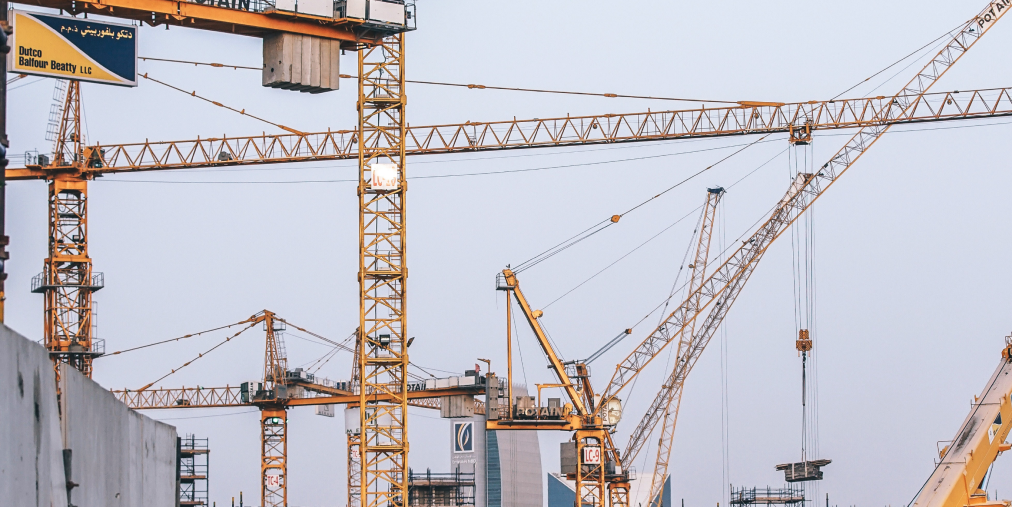Discovering the Financial Benefits of Renting Building Equipment Contrasted to Having It Long-Term
The choice in between leasing and possessing building equipment is pivotal for economic administration in the market. Renting deals immediate price financial savings and operational versatility, enabling business to designate sources a lot more efficiently. Comprehending these subtleties is essential, specifically when taking into consideration how they straighten with details job needs and economic strategies.

Price Contrast: Renting Vs. Possessing
When assessing the financial ramifications of having versus leasing construction equipment, an extensive expense comparison is essential for making notified choices. The option in between renting out and having can substantially impact a company's lower line, and understanding the linked costs is critical.
Leasing building and construction devices typically involves lower in advance costs, permitting services to allocate funding to various other operational requirements. Rental agreements frequently consist of flexible terms, allowing companies to accessibility advanced machinery without long-term commitments. This versatility can be specifically advantageous for temporary jobs or varying work. Nevertheless, rental prices can accumulate in time, potentially going beyond the expenditure of possession if tools is required for a prolonged duration.
Conversely, having building and construction equipment calls for a considerable preliminary financial investment, along with ongoing expenses such as insurance coverage, funding, and depreciation. While ownership can lead to long-term financial savings, it likewise ties up funding and might not offer the exact same degree of adaptability as leasing. Additionally, owning equipment requires a dedication to its application, which may not always straighten with task demands.
Ultimately, the decision to have or rent needs to be based on a thorough evaluation of details project demands, monetary capability, and long-term strategic goals.

Maintenance Obligations and expenses
The selection between owning and renting out building and construction devices not only entails monetary factors to consider yet likewise encompasses continuous maintenance costs and duties. Owning equipment needs a considerable dedication to its maintenance, which includes routine assessments, fixings, and prospective upgrades. These duties can promptly accumulate, bring about unforeseen prices that can stress a spending plan.
On the other hand, when renting tools, upkeep is typically the duty of the rental company. This plan permits specialists to prevent the economic burden connected with deterioration, as well as the logistical obstacles of scheduling fixings. Rental agreements frequently consist of provisions for maintenance, indicating that contractors can concentrate on completing jobs instead than bothering with tools condition.
Moreover, the diverse variety of equipment offered for rental fee enables firms to pick the most current versions with sophisticated modern technology, which can enhance efficiency and productivity - scissor lift rental in Tuscaloosa, AL. By selecting services, services can prevent the lasting responsibility of equipment devaluation and the connected upkeep headaches. Ultimately, reviewing upkeep costs and duties is vital for making an educated choice regarding whether to own or rent construction equipment, substantially impacting overall project prices and operational performance

Depreciation Effect on Possession

A significant factor to think about in the decision to own building and construction tools is the impact of depreciation on general ownership prices. Devaluation stands for the decrease in value of the devices over time, influenced by variables such as usage, deterioration, and improvements in innovation. As equipment ages, its market value diminishes, which can dramatically impact the owner's monetary position when it comes time to trade the devices or sell.
For browse around this web-site building and construction business, this depreciation heavy equipment near me can translate to substantial losses if the equipment is not used to its greatest capacity or if it lapses. Proprietors should make up depreciation in their economic projections, which can cause greater overall costs contrasted to leasing. In addition, the tax implications of depreciation can be complicated; while it might offer some tax benefits, these are usually balanced out by the reality of lowered resale worth.
Inevitably, the worry of depreciation emphasizes the relevance of understanding the long-lasting economic dedication entailed in having building tools. Firms should thoroughly examine exactly how often they will utilize the devices and the prospective economic influence of devaluation to make an informed choice concerning possession versus leasing.
Financial Flexibility of Renting
Renting building devices offers considerable financial adaptability, enabling business to allocate sources more successfully. This flexibility is particularly vital in a market characterized by changing project needs and differing work. By deciding to lease, businesses can stay clear of the considerable capital outlay required for purchasing equipment, maintaining capital for various other functional requirements.
In addition, renting tools allows business to tailor their equipment selections to particular task needs without the lasting dedication connected with possession. This indicates that businesses can quickly scale their devices stock up or down based on expected and existing job needs. As a result, this versatility reduces the threat of over-investment in equipment that may come to be underutilized or out-of-date gradually.
An additional financial advantage of renting is the capacity for tax benefits. Rental settlements are usually considered business expenses, enabling for prompt tax reductions, unlike depreciation on owned and operated equipment, which is spread out over a number of years. scissor lift rental in Tuscaloosa, AL. This instant expenditure acknowledgment can even more improve a business's cash position
Long-Term Project Considerations
When reviewing the long-lasting demands of a building and construction company, the choice in between owning and renting devices becomes extra intricate. For tasks with prolonged timelines, purchasing devices may appear beneficial due to the possibility for reduced total prices.
The building and construction sector is evolving rapidly, with brand-new equipment offering boosted effectiveness and safety attributes. This versatility is specifically advantageous for services websites that take care of diverse tasks calling for different kinds of equipment.
Furthermore, monetary stability plays a critical duty. Having equipment often entails significant capital expense and depreciation concerns, while renting permits more predictable budgeting and capital. Ultimately, the option between leasing and having must be lined up with the calculated goals of the construction company, considering both current and awaited task needs.
Conclusion
In conclusion, renting out building and construction tools uses substantial financial advantages over long-lasting possession. Eventually, the choice to lease instead than own aligns with the vibrant nature of construction tasks, enabling for flexibility and access to the most current devices without the economic problems connected with possession.
As devices ages, its market worth reduces, which can substantially affect the owner's monetary setting when it comes time to trade the equipment or offer.
Renting out building and construction devices offers considerable economic flexibility, enabling business to allocate sources much more efficiently.Furthermore, leasing tools enables business to customize their tools choices to particular project requirements without the long-lasting commitment connected with ownership.In verdict, renting construction tools uses significant monetary advantages over long-term ownership. Eventually, the decision to rent out rather than own aligns with the dynamic nature of building tasks, permitting for adaptability and access to the most recent tools without the monetary worries connected with possession.